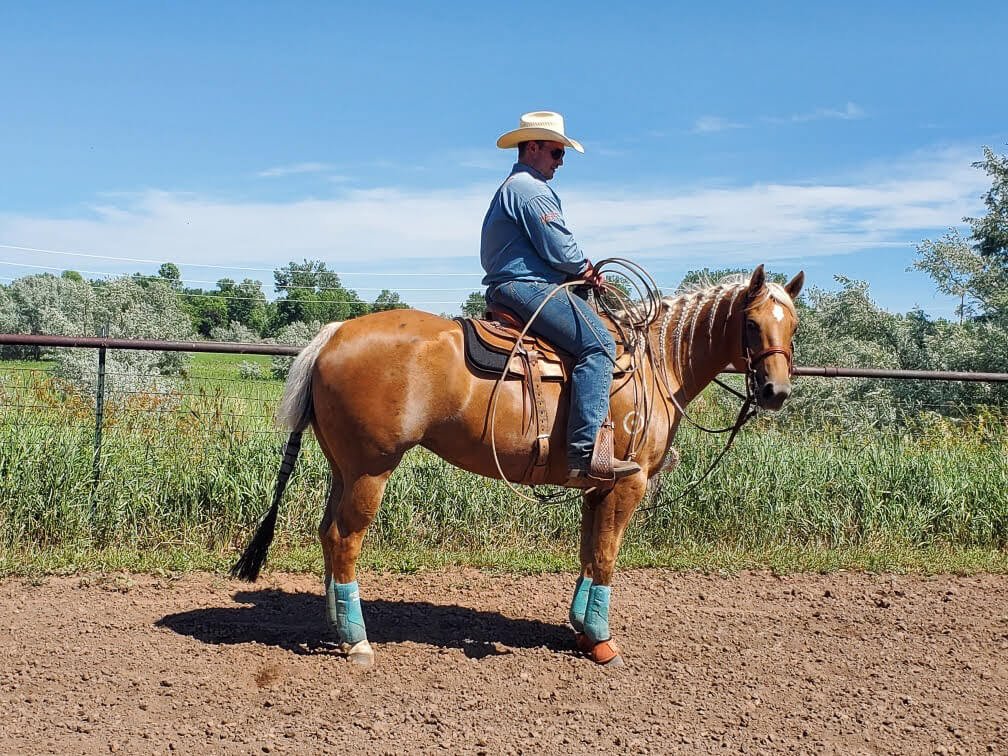Holistic Horse Spring Regimen
We make our home in western South Dakota, and by mid-March, we're itching for spring and summer riding.
Living in a northern climate with four distinct seasons, we’ve found a nice rhythm of working our horses from March through the end of November. Around the start of December, jackpots naturally slow down as people focus on family and the holidays. It stays quiet until the beginning of March when we all start thinking "spring" and getting excited about the possibilities of the season ahead.
We plan five specific things for our horses each spring to help them be in prime condition for the busy summer schedule.
Many of our friends live in the south and follow a different rhythm, but regardless of where you call home, there are a few things we should always do to help our horses feel their best in the spring. We check these off the list in April or May, but you can do it earlier if your climate allows.
1. Floating Teeth
A "float" removes the sharp points from the horse's teeth, making an even grinding pattern for chewing.
Every horse age two and older should have its teeth done once per year. Two to five-year-olds should be checked every four to six months because their teeth erupt more quickly and shed "caps," meaning their baby teeth fall out as their permanent teeth come in.
What happens if you don't check a horse's teeth at least once yearly?
To start, they can lose body condition. If a horse can't chew properly, it won't fully digest its feed or get the maximum nutrition from its food.
A horse with sharp points can also become uncomfortable in the bridle, tossing and throwing their head, constantly chewing the bit, or becoming stiff and unwilling under saddle. Those sharp points get very painful, especially with a bit in their mouth.
Bottom line: Have your vet or a reputable equine dentist float your horse's teeth once a year.
2. Hoof Care
Springtime is the perfect opportunity to get your horse's feet in tip-top condition.
Bonus tip: Get on your farrier's schedule early because you won't be the only one calling for an appointment.
3. Worming
We worm our horses roughly four times per year, one of which is in the spring.
This excellent article from Dr. Mark DePaolo of DePaolo Equine Concepts has influenced much of the way I think about worming our horses. If you're looking for an evidence-based resource for the pros and cons of all parasite management, here's your source.
Typically, we use a chemical de-worming paste twice per year and the Silver Lining Herbs Herbal De-Wormer twice. I am a fan of the herbal de-wormer and have had excellent results. This product works best with the lunar cycles, so be sure to use Silver Lining's handy wormer schedule when making your spring plan.
4. Vaccinations
This will surprise many people, but we DON'T vaccinate all of our horses for everything every single year.
This article on vaccination risks and this article suggesting a common sense vaccination protocol are excellent, eye-opening, and evidenced-based resources to look at the pros and cons of vaccines and make the right decision for our horse program.
We follow Dr. DePaolo's guidelines and vaccinate our yearlings one time with the core vaccines and keep track of each horse's tetanus schedule. That's it. If we're concerned about an outbreak in our area, we support our horses with Silver Lining Herbs Immune blend until the threat has passed.
5. Liver and Kidney Cleanse
Our horses, especially performance horses that are hauled often, are exposed to many environmental toxins, chemicals, and stress.
This is an excerpt from a Silver Lining Herbs article on equine detoxification:
"Detoxing is not a fad. Every horse detoxes, and it is a natural occurrence in the body. The body is meant to bring good stuff in and take the bad stuff out. The problem is our horses are getting less of the good and more of the bad than ever before. Because of this, their kidneys and liver may need some added support. By supporting the body's natural detoxification system, equine health improvements can include, but are not limited to, normal vitality, energy, range of motion in joints, muscle pliability, increased ability to respond to allergens normally, and much more. When the body's detoxification systems work as they should, the processes they are responsible for naturally improve."
To support their major filtering and elimination organs, we do a thirty-day Silver Lining Liver and Kidney Support protocol in the spring and the fall. We take a proactive approach and do all we can to help the liver and the kidneys function at their best.





